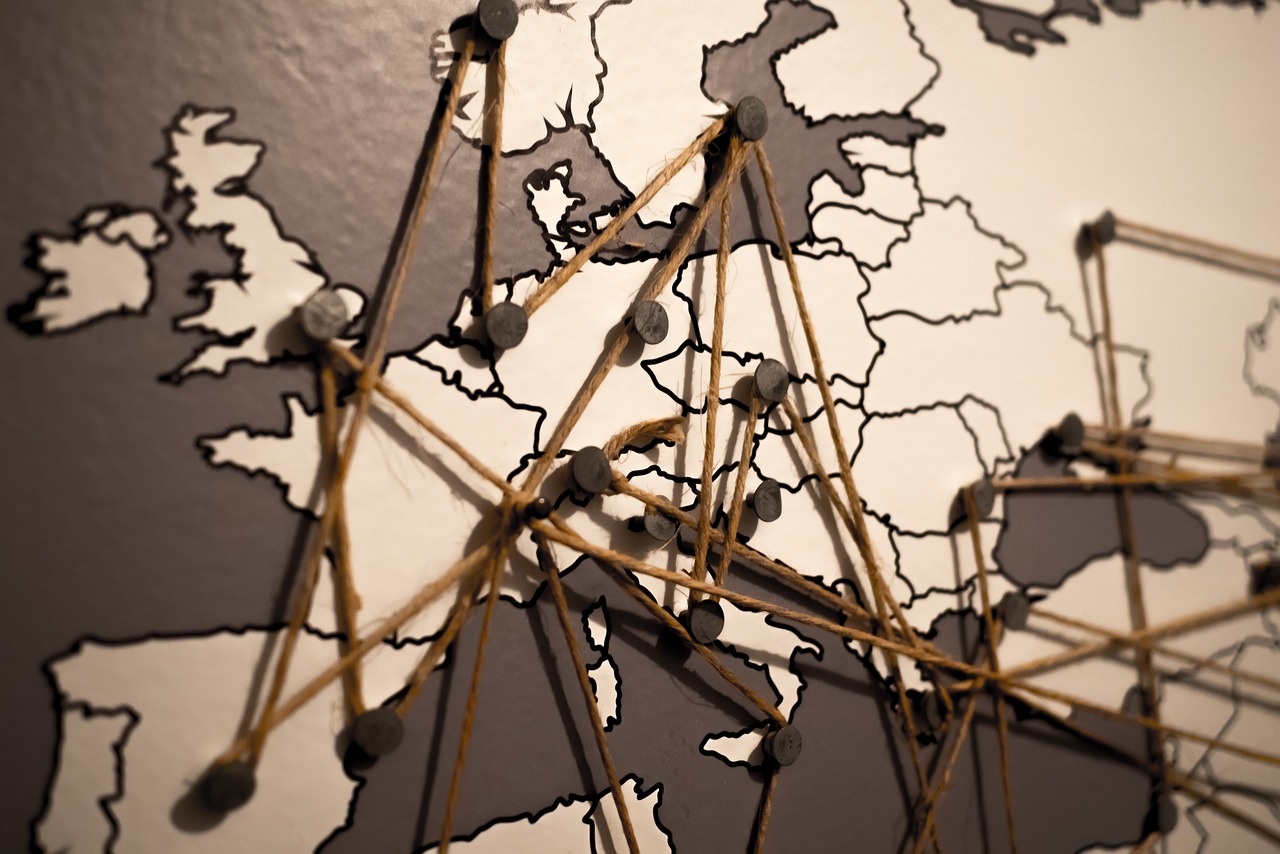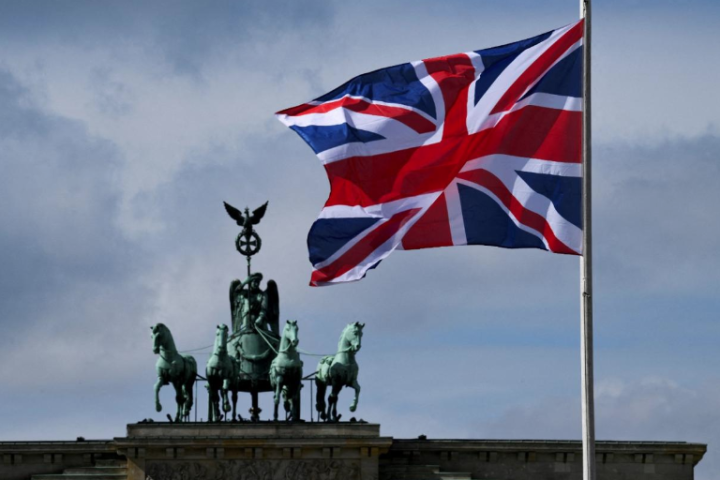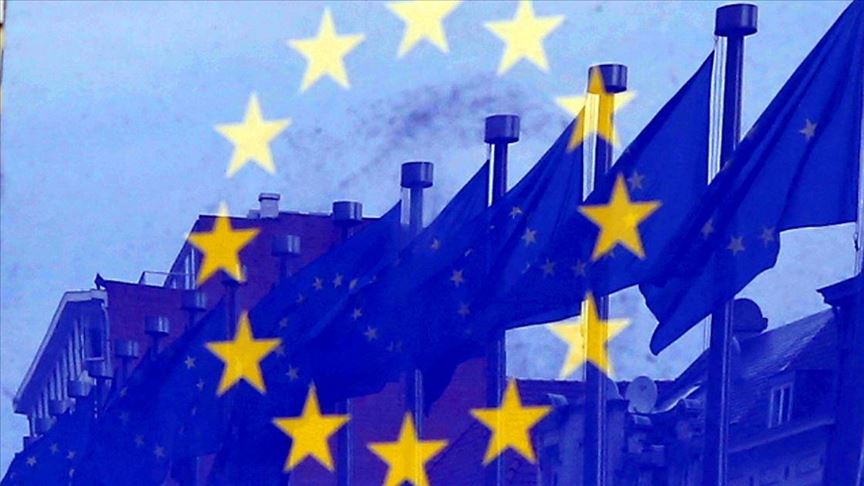At the last EU leaders’ summit of this year, which took place last Thursday and Friday, the issue of Ukraine’s accession to the European Union was discussed. It was decided to start accession negotiations. A study published this week pointed out that Ukraine’s accession to the EU would lead to 17 percent of the EU’s common budget flowing to this country.
Germany is short of staff. This shortage can only be filled with cheap labor. The first thing that comes to mind is to bring in skilled workers from abroad, but women are also encouraged to accept any job that is offered because “it will also liberate you”. Women are asked to be caregivers, fertile, sexy and Mother Teresa at the same time. “In fact, women are undiscovered gems, they can do anything if they want to!” The crucial question is for whom.
[su_posts posts_per_page=”1″ post_type=”any” tax_term=”22757″ offset=”1″ order=”desc” orderby=”id” post_status=”any” ignore_sticky_posts=”yes”]
In the United Kingdom, the Scottish Trade Union Association has warned the Scottish government of new cuts that are expected to come in the coming period. The cuts will hit women the hardest.
In France last week, journalists’ unions, journalists’ associations, associations and media outlets launched a petition to strongly protest against the French proposal to make exceptions to the freedom of the press text currently under discussion in the European Commission.
UKRAINE’S ACCESSION TO THE EU WOULD COST AT LEAST 190 BILLION EUROS
Harald NEUBER
-Telepolis-
According to a study published this week, Ukraine’s accession to the EU could lead to 17 percent of the European Union’s common budget flowing to the country. Experts at the German Economic Institute (IW) estimate that the financial impact of Ukraine’s full EU membership on the EU’s current multi-annual budget would be between 130 and 190 billion euros.
The EU’s multi-annual budget for 2021-2027 amounts to around €1.1 trillion. Report Authors Samina Sultan and Berthold Busch write
If Ukraine joins the European Union (EU) in the next few years, it will have many consequences. Most importantly, such accession would have a major impact on the EU budget. As a country with a large population, low welfare levels and an agrarian character, Ukraine would be eligible to receive significant financial resources from the EU budget.
Although there are still major uncertainties regarding Ukraine’s participation, for example on the exact formal organization or timeframe, quantitative estimates of costs are important for future discussions.
As explained by the researchers, the exact amount depends on several factors, including assumptions about the arable land area and the Ukrainian population. In their calculations, they assume a total of 70 to 90 billion euros in agricultural subsidies for Ukraine.
In addition, between 50 and 90 billion euros will be spent on the so-called cohesion policy. These funds aim to support structurally weak regions in their growth and equalize economic and social differences across European regions.
Experts emphasize that the EU must be ready to reform itself in the face of this level of funding. In particular, the political decision to bind Ukraine more closely to the EU with a view to accession can only be credibly implemented through such reforms.
These reforms should be both institutional and financial. For example, it is proposed to limit cohesion spending to poorer Member States.
The German Economic Institute IW study estimates the potential financial support for Ukraine’s cohesion policy. If Poland is taken as a benchmark, this would range from 62 to 87 billion euros. “Based on data for Romania, the potential cohesion spending for Ukraine is just under 50 to 70 billion euros,” the study says.
This means that Ukraine could receive significantly more than Romania, which is currently entitled to just under €30 billion from the cohesion policy. Most of the cohesion funds are earmarked for Poland in the medium-term fiscal framework for 2021-2027, at around 75 billion euros.
Only in one calculation scenario would Ukraine knock Poland off this top position. “According to these estimates, however, Ukraine would be the biggest beneficiary of the cohesion policy together with Poland compared to the other member states,” Sultan and Busch say…
GERMANY: WOMEN’S POLICY AND STAFF SHORTAGES
Barbara DRIBBUSCH
-TAZ-
The other day I attended a press breakfast organized by a recruitment agency. The topic they invited us to talk about sounded very topical. They said they wanted to talk about “the acute shortage of skilled labor and the employment situation of women”. That’s actually a good thing, but then it happened. A social democratic woman at the table said that part-time work for women was a “questionable luxury” given the staff shortage. The head of an association emphasized that women are “an important and untapped resource in the labor market”. Untapped resource, aha. Have these two women ever looked at typical “women’s work”(…)
Women are experts, assistants and Mother Teresa all rolled into one. And of course they should have children. They should have more children. Demography, the aging population! Let the children come, preferably from more highly educated families; after all, that’s why parental allowance was invented. But what about the children when the mothers work full time?
A recently published Bertelsmann study revealed that hundreds of thousands of childcare places are missing due to staff shortages. Mothers are expected to work full-time, but full-time childcare is not available. How will this work? Should women strap their babies on their backs and go to work?
Women are constantly faced with new tasks and sometimes the new tasks are also old tasks. Gerda Hasselfeldt, President of the German Red Cross, recently said that they recommend that caregivers be further “trained” in caring for relatives, because professionals can no longer do it alone. Parents are getting older and it is not enough to rely on professional care services, mothers and daughters have to step up again. Unless of course you pay for extra special help. Which brings us to money.
Women need to earn more money. Fifteen years ago, alimony claims after divorces were reduced. One of the reasons for this was to “encourage” mothers to earn more money early on. The incentive to work more, including single parents, was also recently proposed by Finance Minister Lindner. Politicians are constantly shoving tempting things under women’s noses that will ‘save them from laziness’, very attractive, thank you.
Women are supposed to be the milkman’s egg-laying daughter, giving milk, laying eggs, all in one special production. If things don’t work out, tough luck. Single parents have a higher risk of poverty than almost anyone else. It doesn’t really matter. Let the woman perform better in the relationship so that the man doesn’t leave her.
There is a trick in American management where managers exploit their subordinates. The boss says: “Hey, I know you can do it! I believe in you. I trust you!” And then comes a huge task that cannot be accomplished without burnout syndrome. Yes. [laughs] Yeah.
This is an old story: Ideas useful for capital are often sold as the liberation of women. This can make you sick.
UNION OF SCOTTISH UNIONS (STUC) WOMEN’S COMMITTEE WARNS THAT CUTS WILL HIT WOMEN HARDEST
Matt KERR
-Morning Star-
The STUC women’s committee has warned that the Scottish government’s cuts will hit women hardest.
The SNP-Green Scottish government’s draft budget next week is expected to be the most challenging of the devolution era, with ministers struggling to plug a £1.1 billion black hole.
Unions feared serious cuts to services already in crisis after 15 years of austerity. These fears have been heightened in recent weeks by Finance Minister Shona Robison’s warning that Scotland’s public services “will have to downsize their workforce”.
Trade unionists on the STUC women’s committee warned of the disproportionate impact of the service cuts on women.
The Committee noted that women are much more likely to live in poverty, earn low wages, have unpaid care responsibilities for children, the elderly and persons with disabilities, and experience domestic abuse and gender-based violence.
The committee also highlighted that while 26 percent of men are classified as high-income earners, 18 percent of women are the least likely to benefit from tax and national insurance deductions.
STUC Women’s Committee Chair Lorna Glen warned: “If the Scottish government is serious about tackling gender inequality, it must invest in our public services. The STUC’s tax report shows that it is within the powers of our parliament to raise £1.1 billion through income and property taxes from next April. Together with long-term wealth, property and aviation taxes, the Scottish government could raise a further £2.6 billion. Instead of threatening cuts to public services, these are the measures we need to see if we want to reduce gender inequality. It is women who both power and depend on our public services.”
FRANCE: WILL THE RIGHT TO SPY ON JOURNALISTS BE ENSHRINED IN EUROPEAN LAW?
Eugénie BARBEZAT
-Humanité-
Member state governments, MEPs and the European Commission have until then to agree on a draft European Media Freedom Act (EMFA). Article 4 of this text has provoked strong protests from the media sector. Journalists’ unions, journalists’ associations, associations and the media have launched a petition condemning the freedom-destroying measures contained in the text. “Protecting journalists’ sources is a fundamental condition of press freedom and therefore of democracy. It is recognized as such by the European Court of Human Rights (ECHR),” the petition reads.
As is often the case, the devil is in the details. Despite a rather auspicious title and a first version guaranteeing the confidentiality of journalists’ sources, the draft regulation presented by the European Commission on September 16, 2022 has been continuously amended, in particular at the request of France, in a direction increasingly contrary to its stated purpose.
Article 4 of the original text prohibited the use of spyware capable of intercepting emails and secure messages against journalists and the media, except when authorized by an independent judicial authority for “the investigation or prevention of a serious crime unrelated to the professional activities of the media or its employees” and “access to journalistic sources”. The text states that this can also apply, by way of exception, “for reasons of national security”.
French authorities are demanding an “explicit exception clause” to the ban on monitoring journalists. According to the investigative journalism association Disclose, “France wants to be able to prevent the work of the press when necessary in the name of national security”.
The text, which the majority of other countries adopted almost unanimously last June after intense lobbying, was a more liberal version of the law and has already provoked outcry from 80 European media organizations and associations. The new text prohibits forcing journalists to reveal their sources, searching them or spying on their electronic devices, while expanding the room for maneuver for intelligence services: Spyware can be used in investigations linked to a list of 32 offenses punishable by three to five years in prison. The list includes sabotage, forgery, corruption and invasion of private property. Journalists who work on these topics and are associated with sources targeted by such investigations could therefore be subject to police surveillance.
Maja Sever, President of the European Federation of Journalists, said: “Article 4 is the most important article for journalists, because its main purpose was to protect journalists’ sources and provide legal guarantees for journalists and media. Why insert a national security clause in a law designed to protect media freedom when we all know that national security is dealt with at the national level? This reflects a non-libertarian approach.” In recent years, Greek, Spanish, Bulgarian and Hungarian authorities have cited national security as a justification for the use of Pegasus and Predator spyware against investigative journalists.




